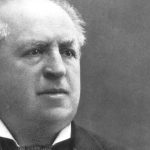
The book of Nehemiah speaks of a time when God’s people were in distress and in need of spiritual leadership. It shows how God is faithful to keep his word and how he is faithful to care for his people when from their perspective the present is difficult and the future appears to be grim. The book of Nehemiah shows how God called a leader and used this leader to encourage the people to trust in God and act on that trust. The message and principles of this book are relevant today for the people of God, especially those who lead them.
Second Chronicles 16:9 states, “For the eyes of the Lord move to and fro throughout the earth that He may strongly support those whose heart is completely His.” Nehemiah had such a heart. The beginning of Nehemiah’s book reveals something of his heart for God’s glory and the reputation of God’s people. It shows how Nehemiah was both a man of prayer and a man of action, ready to serve the Lord in any capacity. It also reveals some important truths about Nehemiah’s God. He is a God who is at the same time both just and merciful. He is a faithful God who is ready to hear the prayers of those who love him and act on their behalf.
Nehemiah is a man of prayer. The prayer recorded in Nehemiah 1:4–11 is the first and longest prayer of nine prayers recorded by Nehemiah in this book. He is an example of a believer who truly prays without ceasing. At times it seems he is carrying on an ongoing conversation with God. It is very natural for Nehemiah to go to God in prayer when he hears the report from Jerusalem. Sometimes in dire situations people will say, “I guess all we can do is pray.” It is as if prayer were a last resort, but it is no last resort for Nehemiah. For him, it is his first option. When prayer becomes the first option for a person, it is an indication that he or she is truly walking with and depending on God in all things. It is a true sign of humility. It is no wonder God used Nehemiah as he did, knowing that “God is opposed to the proud, but gives grace to the humble” (Jas 4:6).
Nehemiah understands that both he and his people were called to be servants of the Lord. Eight times the word “servant” appears in this prayer. He refers to himself, Moses, and to all of Israel as God’s servants. When God’s law was given to Israel by Moses, such an understanding was made clear: “For the sons of Israel are My servants; they are My servants whom I brought out from the land of Egypt. I am the Lord your God” (Lev 25:55). As he prays, Nehemiah may be remembering the words of the prophet Jeremiah that spoke of God’s gathering his people from exile and bringing them back to the promised land: “‘Fear not, O Jacob My servant,’ declares the Lord, ‘and do not be dismayed, O Israel; For behold, I will save you from afar and your offspring from the land of their captivity. And Jacob will return and will be quiet and at ease, and no one will make him afraid’” (Jer 30:10).
Nehemiah’s emphasis on their identity as servants of the Lord reveals his submissive disposition before God and his sense of purpose in respect to God. Israel’s existence as God’s covenant people centers on their service to Yahweh. They were chosen to be his servants. Every believer should have this disposition and sense of purpose. Jesus demonstrates it when he washes the feet of his disciples (John 13:15–17), and he teaches that greatness in his kingdom comes through servitude (Matt 20:26; 23:11; Mark 9:35; 10:43; Luke 22:26). It goes against our nature, but it is evidence of our new nature in Christ.
Nehemiah recognizes there are others who are faithfully praying for the restoration of Jerusalem. He realizes the importance of ministering in the context of the community of faith. He knows he cannot do what God has laid on his heart alone, and neither is he meant to do it alone. The book of Nehemiah highlights the importance of God’s people working together for God’s purposes. On a number of occasions both the Old and New Testaments show how important the community of faith is to prayer and service. All too often believers underestimate the power of corporate prayer. It unifies, encourages, and inspires the people of God—all necessities for doing God’s work, as seen in the book of Nehemiah.
Nehemiah’s prayer is born out of an intense love for God and his people, Israel. Therefore, he perseveres in his praying and fasting day and night. He appeals to a great and merciful God who graciously made himself known to Israel through his covenant with them. He recognizes God is faithful to his promises both to discipline his people when they sin and to restore his people when they repent of their sin and return to him, their Redeemer. Nehemiah prays with confidence, knowing that God will hear his prayer because his prayer is founded on the promises of God. Nehemiah understands God’s people were chosen to be God’s servants, and it is with this humble spirit and sense of purpose he prays. He identifies with the people of God and knows he is not alone in his desire and prayers for the restoration of Jerusalem. Moreover, Nehemiah trusts in the power of God and the wisdom of God’s timing to answer his prayer.
This post is adapted from Nehemiah: A Pastoral and Exegetical Commentary by T. J. Betts (Lexham Press, 2020).







